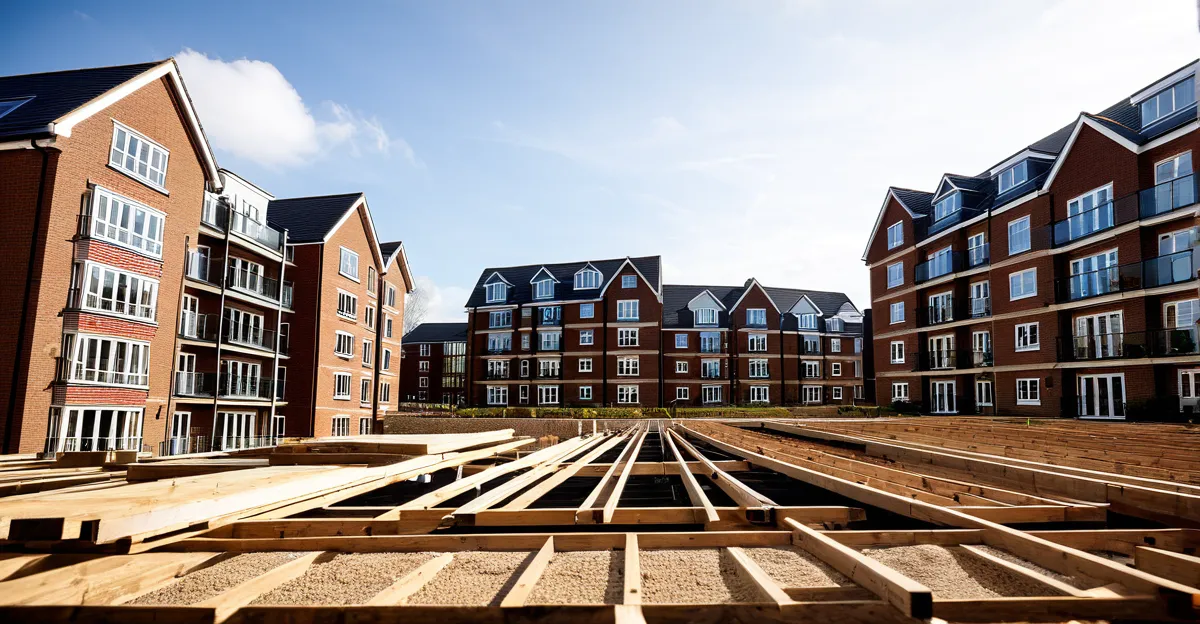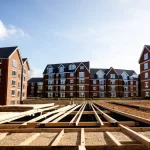Economic Contributions of UK Real Estate Developments
The UK real estate impact on the national economy is significant, driven primarily by large-scale property projects that generate substantial direct economic output. Real estate developments contribute to economic growth by creating construction activities and stimulating related sectors. Construction firms not only build residential and commercial properties but also boost demand for raw materials and professional services, amplifying their influence on the overall economy.
The property sector is a critical component in GDP calculations. It encompasses more than just building structures; the sector includes rentals, real estate transactions, and property management services. Together, these activities contribute a sizable portion to the UK’s GDP, underlining the importance of real estate developments in national economic dynamics. Furthermore, the sector supports thousands of jobs, from construction workers to architects and real estate agents, highlighting its role in employment statistics.
Topic to read : How Does the UK Housing Market Impact Personal Investments?
Real estate projects lead to multiplier effects by fostering economic activities beyond immediate construction. For instance, when a new commercial development opens, it attracts businesses and consumers, boosting local retail and service industries. This ripple effect strengthens local economies and stimulates broader economic growth. Moreover, investments in real estate often signal confidence in the market, encouraging further capital inflows and business expansions.
In sum, property sector contributions in the UK extend beyond direct construction output. They drive sustained economic growth by integrating with various industries, creating jobs, and attracting investments, making real estate developments a cornerstone of the UK’s economic landscape.
Also to see : What are the future prospects for UK residential property markets?
Job Creation and Employment Opportunities
Real estate job creation significantly shapes the UK employment landscape, producing both short-term and long-term economic benefits. During the construction phase, projects drive demand for construction jobs, employing a diverse workforce ranging from skilled laborers to engineers. These roles offer immediate employment boosts in regions hosting major developments.
Beyond construction, the property sector supports long-term employment through property management, real estate agencies, and maintenance services. This sustained job creation reinforces the economic impact of real estate developments by providing stable career pathways and income sources for local populations.
Case studies of major UK developments reveal pronounced employment spikes. For example, new commercial or residential projects often correlate with increased hiring not only in construction but also in related industries such as architecture, surveying, and legal services. This multiplier effect amplifies UK employment opportunities beyond the initial building phase.
Therefore, the real estate sector’s role in job creation is multifaceted: it generates immediate construction jobs while nurturing ongoing employment in property-related fields, both essential components in the broader economic framework.
Infrastructure Enhancement and Regional Development
Infrastructure investment linked to UK real estate developments plays a pivotal role in boosting regional growth and advancing urban development UK. Real estate projects often necessitate improvements in transport networks, utilities, and public services, thereby elevating the quality of local infrastructure. For example, new commercial or residential developments can lead to upgraded roads, enhanced public transit connections, and expanded utility capacity, which benefit both new occupants and existing communities.
By integrating infrastructure upgrades with property projects, developers and local authorities address critical needs, fostering broader regional development beyond immediate construction sites. This synergy helps reduce economic disparities between urban centers and surrounding areas, supporting more balanced regional growth. Additionally, real estate-driven infrastructure improvements can catalyze urban development UK through regeneration initiatives in underdeveloped neighborhoods, turning previously neglected spaces into vibrant economic hubs.
Such developments not only create direct value through better connectivity and services but also indirectly increase property values and attract further investments. Through sustained infrastructure investment, real estate projects contribute significantly to long-term economic resilience and inclusivity across UK regions.
Attracting Investment and Capital Inflows
Real estate developments in the UK are a magnet for both foreign investment UK real estate and domestic capital flows, playing a crucial role in the nation’s economic fabric. The influx of investment capital accelerates project financing, leading to the timely completion of large-scale developments and stimulating related sectors. Increased capital flows into property projects boost liquidity in the market, which nurtures further confidence among investors and developers alike.
A significant portion of this property investment trend comes from international investors seeking stable returns and portfolio diversification. These foreign investments often target prime commercial and residential developments, which not only uplifts the UK real estate impact but also enhances the overall economic health by supporting construction activities and employment. Domestic investors contribute alongside, responding to government incentives and favorable market conditions, ensuring a balanced capital inflow.
The broader economy benefits extensively from these capital inflows. As investments surge, they generate economic growth through heightened construction demand and associated industries, including finance and professional services. This cycle of investment and development creates a self-reinforcing environment where real estate projects serve as pivotal engines in sustaining long-term economic expansion.
Tax Revenue and Public Finances
Real estate developments in the UK generate significant property taxes UK, forming a vital component of government revenue. Key revenue streams include stamp duty, business rates, and council tax, all of which contribute robustly to public finances. For example, stamp duty land tax is levied on property transactions, yielding substantial funds as real estate activity intensifies. Business rates apply to commercial properties within developments, creating ongoing fiscal contributions that support local authorities.
How does tax revenue from real estate support public spending? It enables governments to finance essential services such as education, healthcare, and infrastructure maintenance. The consistent flow of revenue from property taxes underpins budgets at both local and national levels, ensuring that economic benefits from real estate developments translate into public goods.
Fiscal policy often leverages these revenue streams, with adjustments to property taxes influencing market behavior. For instance, modifying stamp duty thresholds can stimulate or moderate transaction volumes, thus indirectly fostering economic growth. Additionally, tax revenues arising from the property sector contributions enhance the government’s capacity to invest further in community development and social programs. Overall, the financial inflows from real estate taxation create a sustainable cycle of investment and service provision that supports the UK’s economic stability.
Sectoral Expansion and Supporting Industries
Real estate developments in the UK serve as catalysts for extensive sectoral growth across multiple industries. The construction of new properties stimulates demand for materials and manufacturing, directly benefiting suppliers of concrete, steel, glass, and other building components. This supply chain UK real estate ecosystem expands as manufacturers ramp up production, leading to job creation and increased output outside the immediate construction sector.
Beyond manufacturing, the property sector drives significant growth in finance and professional services. Real estate transactions, mortgage financing, legal services, insurance, and property management create a robust business ecosystem interconnected with the development cycle. These services are crucial to project completion and ongoing management, embedding the property sector deeply within the broader UK economy.
Retail and hospitality sectors also often benefit indirectly from real estate projects. New developments attract residents and businesses, boosting local demand for shops, restaurants, and services. This interaction exemplifies the multiplier effects that ripple through communities, enhancing economic vitality beyond the initial property construction phase.
Together, these interlinked industries underscore how property sector contributions go beyond building structures. They foster a diverse and resilient economic environment, where growth in one sector amplifies opportunities in others, sustaining long-term economic expansion and regional prosperity.
Government Policy and Market Regulation
Government policy plays a decisive role in shaping the UK real estate impact, influencing economic growth patterns through targeted incentives and planning frameworks. UK real estate policy encompasses a variety of measures designed to stimulate development while balancing sustainability and market stability. For example, government incentives such as tax reliefs, grants, and streamlined planning approvals encourage investment by reducing project costs and accelerating timelines, directly supporting property sector contributions to the economy.
Planning regulations also act as vital tools to guide development densities, land use, and environmental standards. These regulations affect the feasibility and attractiveness of projects, thereby impacting economic growth. Developers must comply with zoning laws, building codes, and environmental assessments, all of which ensure that growth aligns with long-term urban planning objectives and community needs.
Economic reforms targeting housing supply and affordability influence the market landscape as well. By adjusting regulations to promote sustainable construction and incentivize affordable housing, the government seeks to address both market demands and social priorities. Such reforms typically lead to more diverse real estate developments, which in turn enhance regional vitality and support a resilient property sector.
Through coordinated policies and regulatory oversight, the government effectively balances growth stimulation with safeguards that protect investors, residents, and the environment, ultimately fostering stable, long-term economic growth and robust UK real estate impact.
Real-World Examples and Case Studies
Real-world examples demonstrate the tangible UK real estate impact on economic growth and illustrate how property sector contributions extend beyond mere construction. For instance, the Canary Wharf development transformed a derelict docklands area into a thriving financial hub. This project not only created thousands of construction jobs during its development but also established a lasting base for employment in finance, retail, and professional services, significantly contributing to regional economic vitality. Economic data show marked increases in local GDP and sustained boosts in UK employment numbers attributable to this development.
Another notable case is the King’s Cross regeneration project in London. Detailed studies reveal how infrastructure upgrades combined with mixed-use developments catalyzed urban development UK while generating substantial tax revenue and attracting diverse businesses. Experts highlight that these integrated projects showcase multiplier effects, where property investments spur wider economic diversification and sustained economic growth across adjacent sectors.
Further analysis of these UK real estate case studies indicates a pattern: large-scale developments deliver multifaceted benefits including enhanced infrastructure, job creation, and robust capital inflows. These outcomes are supported by economic indicators tracking increases in construction output, employment rates, and property values. Industry experts often emphasize the importance of coordinated planning and policy frameworks to maximize these benefits, reinforcing the critical role of real estate developments in shaping the UK’s economic landscape.





